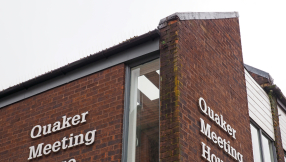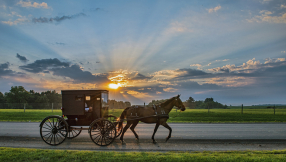The launch of Prime Minister David Cameron’s Big Society initiative this week may prove to be a “watershed” for British politics and the nation, the Archbishop of Canterbury said last night.
Dr Rowan Williams gave two cheers to the initiative for taking local level concerns seriously and seeking to build the Big Society around existing community relationships.
“The Big Society recognises that good society is not simply one with lots of convincing and impressive rules and programmes but a society where people feel confident that they all have something to give, that it will be received and that they will be able to receive from one another in the ‘gift exchange’,” he said.
The Big Society, launched on Monday, aims to get more people involved in making their communities a better place by volunteering their time and money to keep services afloat and starting new initiatives to improve the quality of life for all.
He said the starting point for the church’s response to the Big Society had to be an understanding of the inter-dependency of individuals and communities, and the notion that “it is everyone’s deprivation if one part of the body suffers”.
The additional half cheer, he said, was because it was too early to tell whether the Big Society was a “hand-washing or buck-passing exercise” made necessary by cuts in public funding.
He went on to say that an investment in people would be necessary if the Big Society was to work. Rather than pouring more money into statutory education, he said there was a need for “lateral thinking” about what educates within communities and how certain qualities like fairness, courage and social responsibility can be fostered and nourished in individuals.
“Some of the planning and envisioning for a big society is going to be trying to create the conditions that nourish certain kinds of people,” the Archbishop said.
“At the heart of it all is the conviction that for a society to change, people need to change.
“Society will change not by lots of individuals becoming nicer but by people recognising more and more deeply how much they depend on each other and how much they are impoverished by the poverty of their neighbour.
“That recognition begins to turn around our sense of what we owe to one another.”
The Archbishop was speaking at the latest Charities Parliament hosted in central London by the Faithworks charity. Joining him on the panel were Bob Reitemeier, head of The Children’s Society, and Fran Beckett, former head of Church Urban Fund.
Reitemeier said the Government and people needed to be prepared for the fact that the Big Society would be costly to implement, not only financially but in human terms.
Crucial to the initiative working, he contended, was making people realise that they would benefit from the programmes and social action.
“Over the last couple of decades we don’t have a very strong history as a nation of changing our attitude and our approaches simply because of the common good,” he said.
“We are more willing to change our attitude and approach because we perceive a personal benefit and I think that’s one of those things that has to be challenged in the Big Society and one of the ways it can be challenged is by looking at the convincing evidence that a personal benefit can be achieved by helping someone else.”
He said the role of the church in the coming months would be to advocate love and helping others as the primary purpose of the Big Society, rather than the pursuit of individual rights and benefits.
Beckett echoed his concerns, warning that if the Government took a merely programmatic approach that told people to volunteer simply because certain jobs needed covering, there would be “very little movement”.
She said it was important that the Government explain the ‘why’ and capture the imagination of people. She remained positive about the opportunities for the church, saying that the Big Society would encourage the church to “work with people rather than ‘doing to’ or ‘for’ people”.
All three leaders said it was important for the Government to seek to expand the net of people participating in the Big Society beyond the already overstretched church-going and voluntary sectors. The “generosity and idealism” of younger generations in particular could be tapped into, the Archbishop noted.
Summing up, the Archbishop said the church would need to be patient and “let it take the time it takes” for the church within the Big Society to start yielding results.
He said: “We need to be patient. There are no quick fixes for a lot of the human and social problems that we are facing and we are certainly going to be up against that in the years of ahead.
"Therefore it needs to be a church that is absolutely serious about the worthwhileness of doing the small things because in the eyes of God there are no small things. Just do what’s there and do it because it’s worth doing and be patient to stay there and wait and see.”
Most Popular
Stay up to date with Christian Todayrelated articles
Christians see opportunities for the church in Cameronâs âBig Societyâ plan
Christians see opportunities for the church in Cameronâs âBig Societyâ plan
News

Nigeria: 11 killed in night attack by militants
11 people were killed in yet another massacre in Nigeria

Quakers respond to police raid with worship meeting outside Scotland Yard
Quaker activists will protest against a raid on their Meeting House by the police

Can ordinary Christians learn from the Amish?
From questioning the use of technology to taking the Bible very seriously, we can learn more than quilt-making and horse-and-buggy riding from these quirky American communities.

NI conversion therapy proposal will criminalise innocent behaviour
A proposal to ban conversion therapy in Northern Ireland has been labelled "jellyfish legislation".





